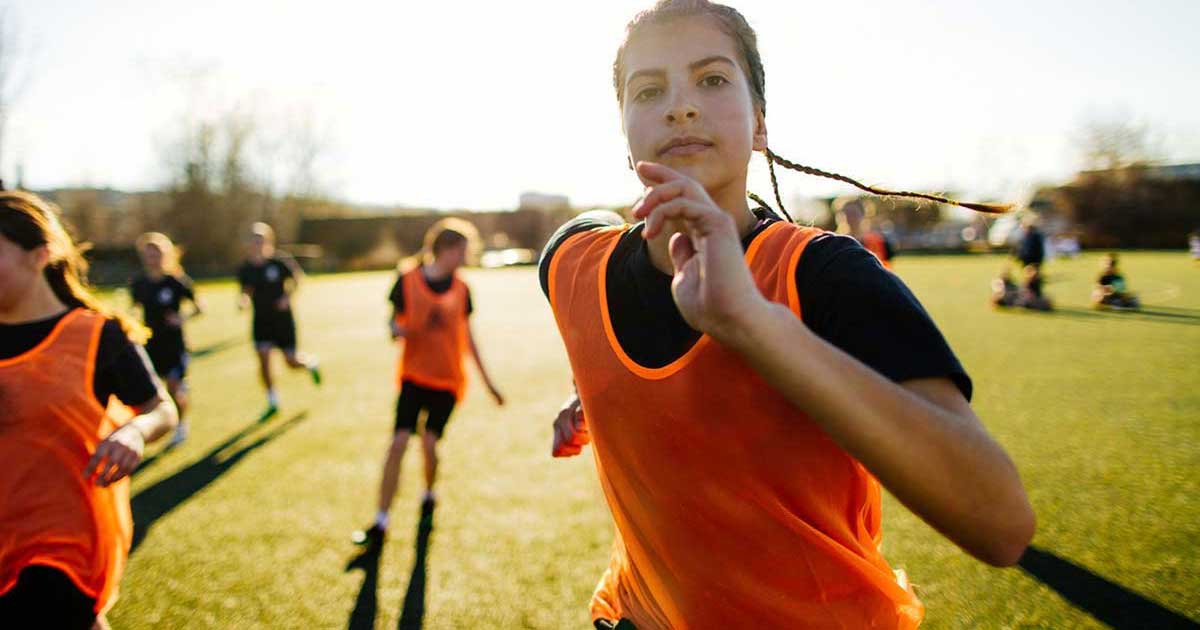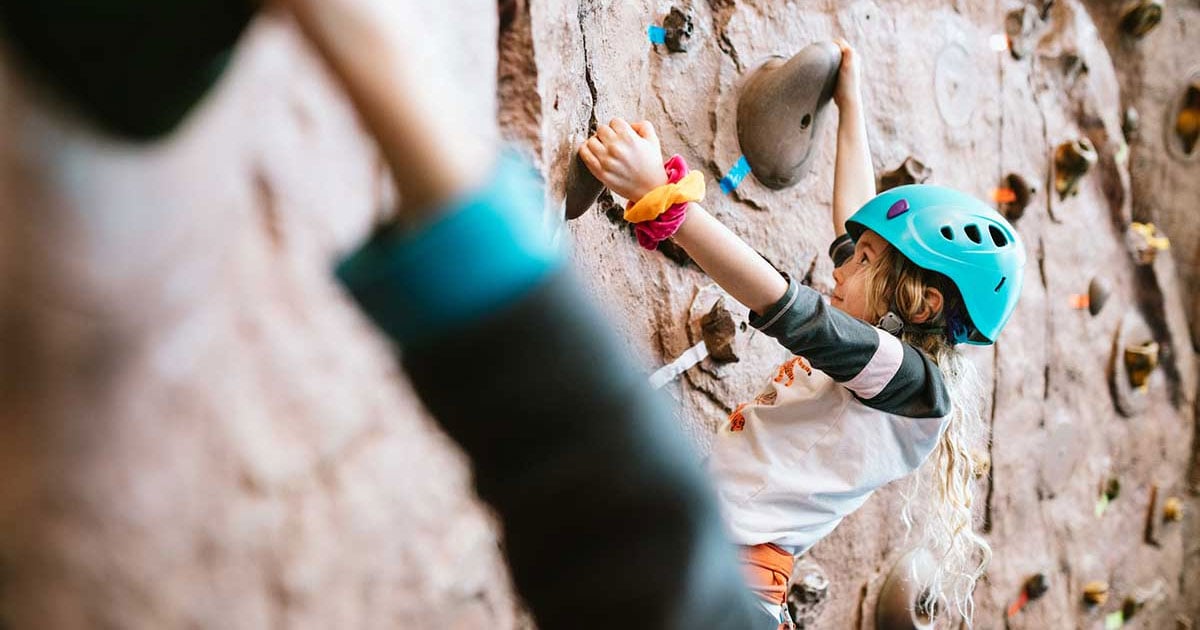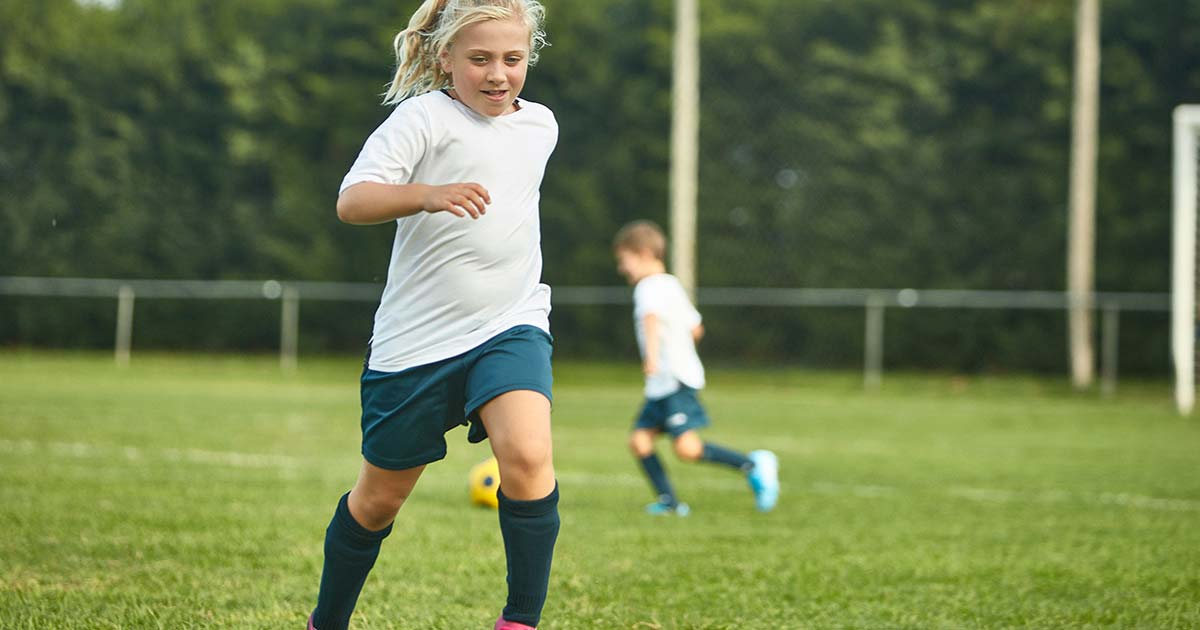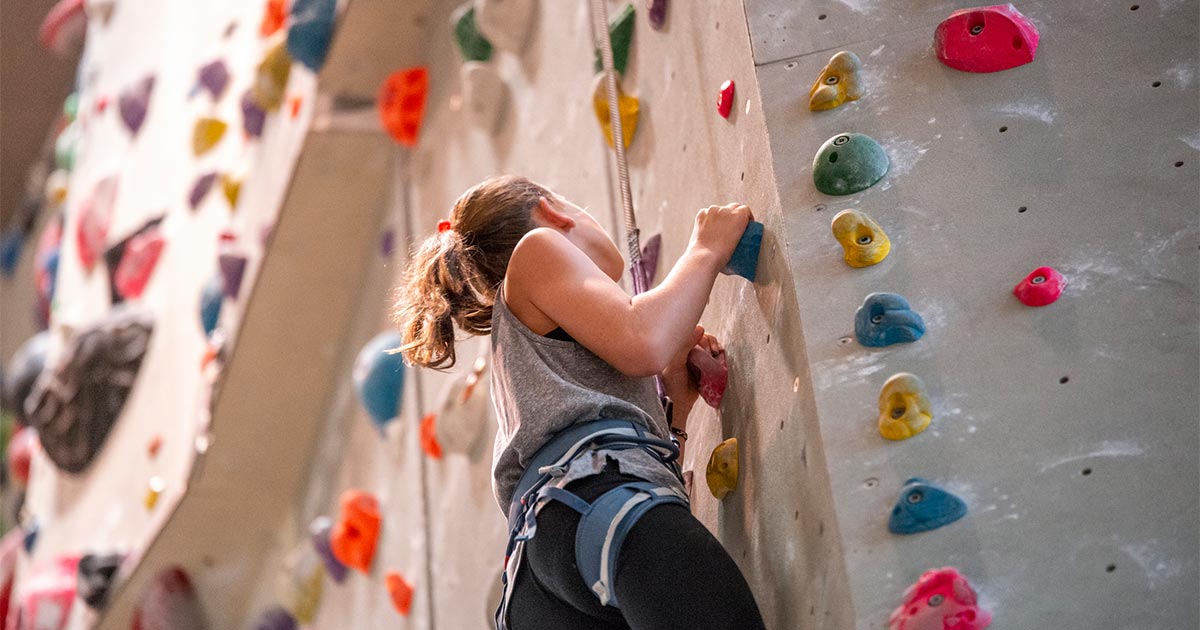
Advice to improve your movement, fitness, and overall health from the #1 in orthopedics in the U.S.
The Benefits of Rock Wall Climbing for Kids of All Abilities
It’s like solving a puzzle on a wall, fostering problem solving, sequencing and fine and gross motor skills that can be translated into everyday activities.
Advice to improve your movement, fitness, and overall health from the #1 in orthopedics in the U.S.

Rock wall climbing is also a good option for children and young adults diagnosed with physical disabilities, who are often limited in the types of recreational and sporting activities that they can participate in.
Physical activity for kids with disabilities helps to increase or maintain their function after surgery to increase range of motion, function, and strength, says HSS pediatric occupational therapist Lorene Janowski, DPS, OTR/L, BCP, MS, C/NDT. “It is also extremely important for children as they transition into adulthood and as the weekly therapy regimen (OT, PT) decreases,” she adds. “It is vital to promote good habits for the future starting at a young age.”
Janowski shares more on how rock wall climbing can benefit children of all abilities.
Flexibility
Reaching for a far-away hold or stretching a leg to get a better grip promotes flexibility throughout the body, Janowski says. “This is needed as we move around throughout our day, managing a variety of obstacles and reaching for objects placed on high and low surfaces.”
Strength
Scaling a rock wall is a full-body workout. As the muscles of the shoulders and back contract to pull the body upward, the legs and glutes push off lower holds to power a climber up a route. “Rock wall climbing also requires proximal strength, which involve the muscles closest to the middle part of the body,” Janowski says.
Children with physical disabilities can particularly benefit from the strengthening aspects of rock wall climbing. “For example, as a child develops strength in their hands while participating in rock wall climbing, one may see an improvement in their ability to open jars or containers that they were previously unable to open,” Janowski says.
Fine and Gross Motor Skills
Whether gripping a large hold with an open hand or pinching the fingers in a tight grip to grasp a tiny hold, rock wall climbing challenges both fine and gross motor skills. (Fine motor skills use the small muscles in the hands and wrists, while gross motor skills use the larger ones.) For kids with disabilities, these are important areas to work on, Janowski says.
Body Awareness
Spatial awareness, or the ability to recognize where one’s body is in relation to their environment, is an important skill for kids of all abilities. Rock wall climbing challenges climbers to constantly assess their position as they move up the wall and realign to better balance weight or reach the next section.
Published 8/24/2022


